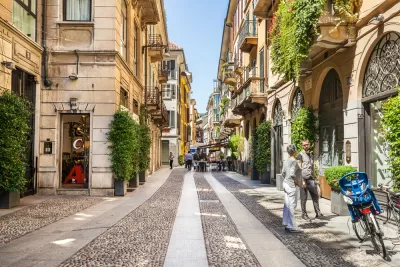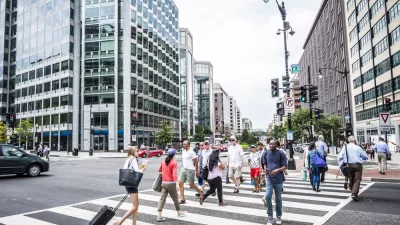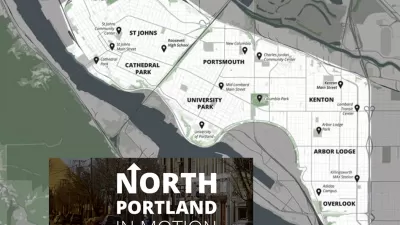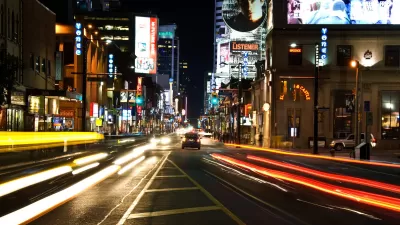Milan is making changes to its streets to ensure that the city's residents and employment base don't overwhelm the city with new automobile traffic when the city reopens for business.

"Milan is to introduce one of Europe’s most ambitious schemes reallocating street space from cars to cycling and walking, in response to the coronavirus crisis," reports Laura Laker.
But the development has an additional layer of motivation that makes Milan a city to watch in the future, whenever the world's cities begin to emerge from pandemic: the city wants to make it harder for people to drive when the crisis is over. "City officials hope to fend off a resurgence in car use as residents return to work looking to avoid busy public transport," as explained by Laker.
To achieve those goals, the city has announced a plan to convert 22 miles of streets into an experimental citywide expansion of space for pedestrians and people on bikes to protect residents as Covid-19 restrictions are lifted.
More details on the Strade Aperte plan is available in the source article.
FULL STORY: Milan announces ambitious scheme to reduce car use after lockdown

Planetizen Federal Action Tracker
A weekly monitor of how Trump’s orders and actions are impacting planners and planning in America.

San Francisco's School District Spent $105M To Build Affordable Housing for Teachers — And That's Just the Beginning
SFUSD joins a growing list of school districts using their land holdings to address housing affordability challenges faced by their own employees.

The Tiny, Adorable $7,000 Car Turning Japan Onto EVs
The single seat Mibot charges from a regular plug as quickly as an iPad, and is about half the price of an average EV.

Seattle's Plan for Adopting Driverless Cars
Equity, safety, accessibility and affordability are front of mind as the city prepares for robotaxis and other autonomous vehicles.

As Trump Phases Out FEMA, Is It Time to Flee the Floodplains?
With less federal funding available for disaster relief efforts, the need to relocate at-risk communities is more urgent than ever.

With Protected Lanes, 460% More People Commute by Bike
For those needing more ammo, more data proving what we already knew is here.
Urban Design for Planners 1: Software Tools
This six-course series explores essential urban design concepts using open source software and equips planners with the tools they need to participate fully in the urban design process.
Planning for Universal Design
Learn the tools for implementing Universal Design in planning regulations.
Smith Gee Studio
City of Charlotte
City of Camden Redevelopment Agency
City of Astoria
Transportation Research & Education Center (TREC) at Portland State University
US High Speed Rail Association
City of Camden Redevelopment Agency
Municipality of Princeton (NJ)





























